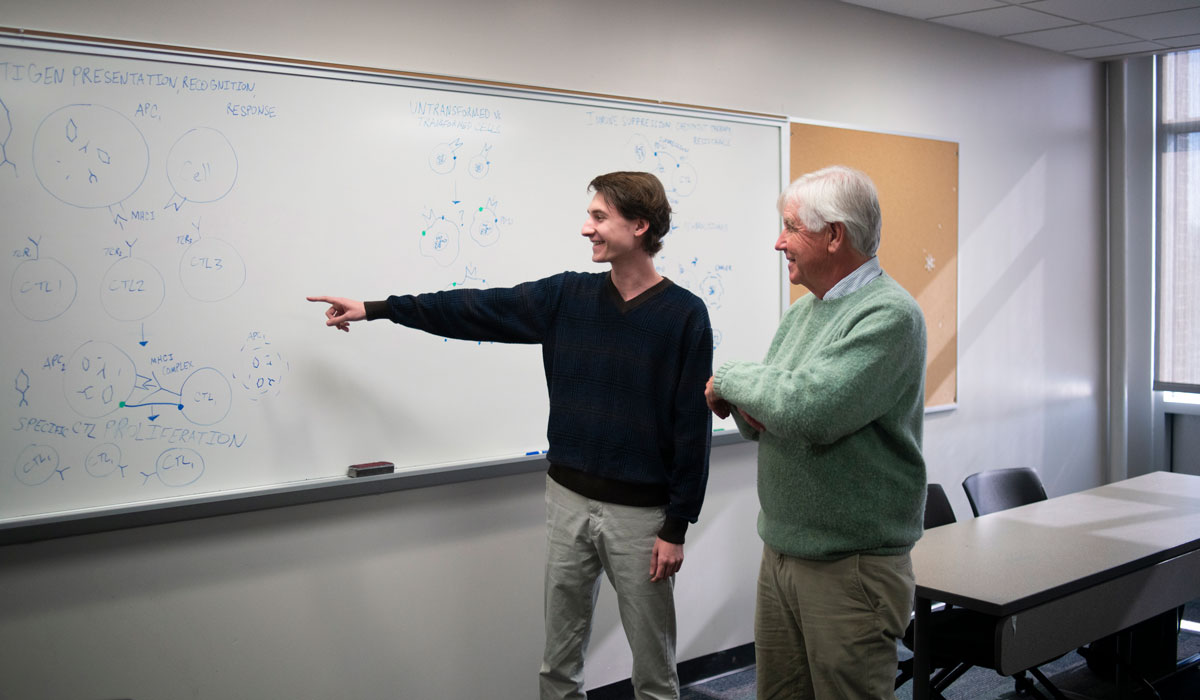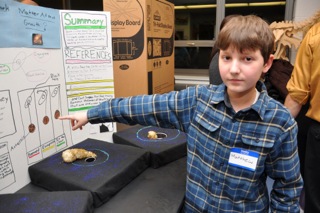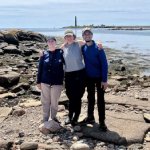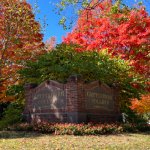

Matthew Cherubino ’22 can recall his middle school science fair projects in vivid detail—black holes and dark matter in 2012; T cells, B cells, and monocytes a year later; and acid precipitation shortly thereafter. At Franklin Township School in Quakertown, N.J., the aspiring scientific researcher won first prize each year.
Now a biochemistry and molecular biology major at Gettysburg College, Cherubino has continued along the path of scientific research, publishing multiple works in the Cupola and presenting at the CAFE Symposium and Celebration for student scholarly research.
The subject of his research this time?
Immune checkpoint inhibitors for cancer treatment, a project he began in his First-Year Seminar, Cancer in Society: A War Against Immortality, taught by Chemistry Prof. Robert Garrity.
Before taking this course, Cherubino had an innate interest in and connection to cancer. Members of his family have been diagnosed with and passed away from cancer, further driving his passion for this type of research.
“[I was inspired] because of the gravity of the issue,” Cherubino said. “Immune checkpoint inhibitors treat late-stage cancers. They’re usually terminal, so it’s sort of a hopeless situation, and this is an emerging solution to that hopeless situation.”
Before Cherubino stepped foot in the classroom, he’d already read up on cancer to jumpstart his eventual research. Through an email exchange before the fall semester to discuss the subject, his future mentor, Garrity, quickly recognized his dedication to pursue cancer research.
 The course balanced scientific facts and historical context about cancer, which proved to be the perfect fit for Cherubino, who advanced his research and met with Garrity three times a week to discuss immunology.
The course balanced scientific facts and historical context about cancer, which proved to be the perfect fit for Cherubino, who advanced his research and met with Garrity three times a week to discuss immunology.
Garrity’s First-Year Seminar—one Cherubino highly recommends to incoming first-years—piques students’ interests about many facets of cancer so that they can potentially tackle the larger problem in the professional world. It gave Cherubino the opportunity to learn more about a potential career path in cancer research, which offers many opportunities and generous funding.
“In science, the projects that get the most money have the most avenues to go down, and there’s a lot of money in cancer research—it has an entire department at the National Institute of Health,” he said. “There’s a career in just looking at one tiny fraction of the research, and you could never cover all of it. I guarantee you that when I’m an old man, there will still be a lot more to research about cancer.”
Learn more about the First-Year Seminar experience and locate your ideal seminar topic.
Jumpstart research on course topics with the faculty here at Gettysburg.
By Phoebe Doscher ’22
Photos by Phuong Le ’20
Posted: 12/09/19


